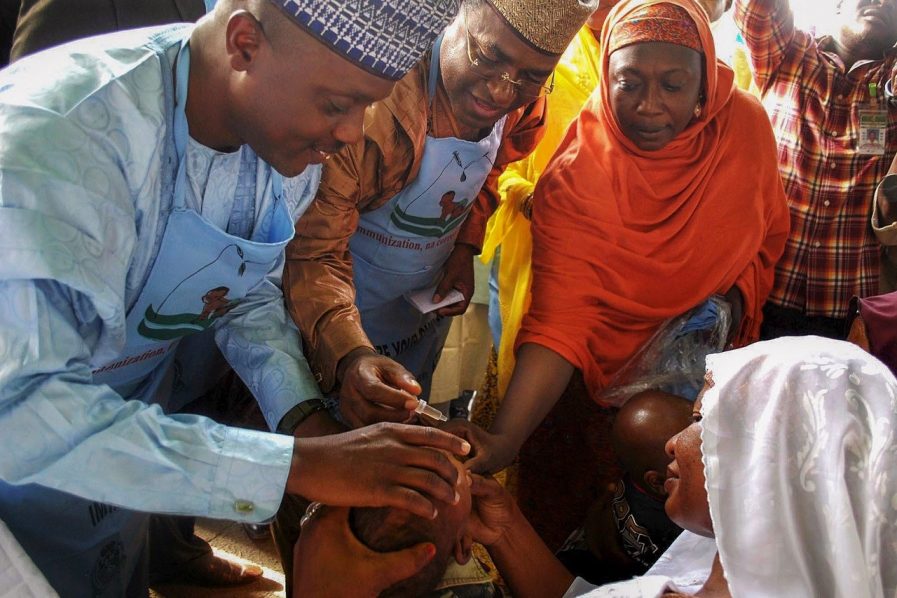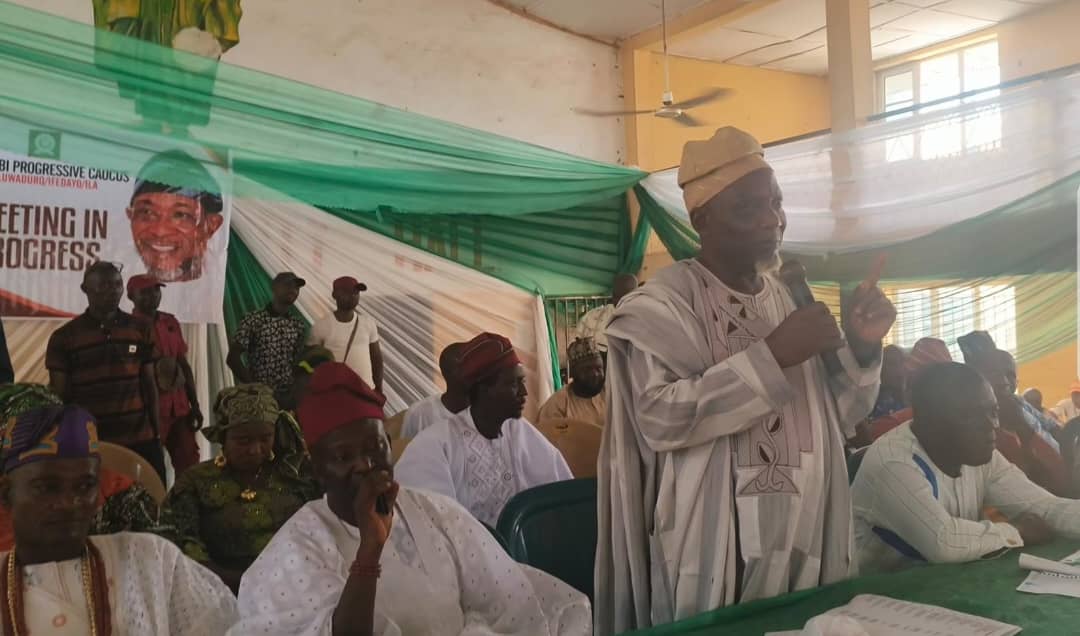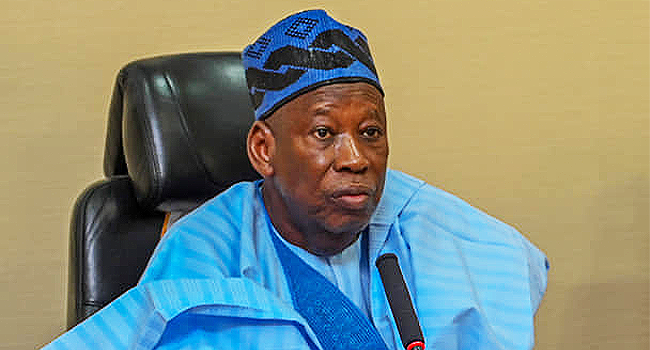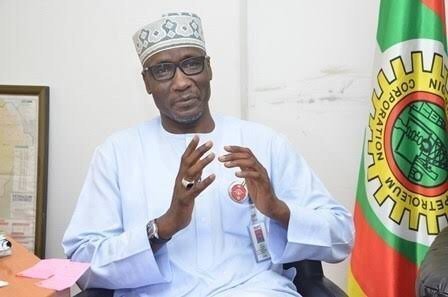{MAGAZINE} 2018 Measles Vaccination Campaign: Time To Get It Right!


Despite the efforts of the government and international agencies to fight the menace of measles, this childhood killer disease still ravages developing countries. There is a good news by the way as the year 2018 marks another year of measles vaccination campaign. To combat this disease, 13 days were selected in March where it is expected that every child between the ages of 9 and 59 months [5 years] would have been vaccinated.
In this piece, FRANCIS EZEDIUNO examines this deadly disease and steps the government of the State of Osun has taken to combat it and the 2018 Measles Vaccination Campaign modus operandi.
Measles is one of the six childhood killer diseases after Diphtheria, Tuberculosis, Whooping cough, Polio and Tetanus. The most vulnerable children are those between the ages of 9 months and five years or u-5 (under five) as they are referred to, especially in developing countries.
According to the World Health Organisation (WHO), Measles is a highly contagious, serious disease caused by a virus. Before the introduction of measles vaccine in 1963 and widespread vaccination, major epidemics occurred approximately every 2–3 years and measles caused an estimated 2.6 million deaths each year.
The disease remains one of the leading causes of death among young children globally, despite the availability of a safe and effective vaccine. Approximately, 89,780 people died from measles in 2016 – mostly children under the age of 5 years.
Measles is caused by a virus in the paramyxo virus family and it is normally contracted through direct contact or air, as it is an air-borne disease. The virus infects the respiratory tract, then spreads throughout the body. Measles is a human disease and is not known to occur in animals.
Accelerated immunisation activities have had a major impact on reducing deaths caused by measles infections. During 2000–2016, measles vaccination prevented an estimated 20.4 million deaths. Global measles deaths have reduced by 84% from an estimated 550,100 in 2000 to 89,780 in 2016.
WHAT IS MEASLES?
Measles is an infectious disease causing fever and red rashes on the skin, it mainly affects children but can occur at any age. Measles, also known as Rubeola or morbilli, is a viral infection of the respiratory system.
Measles is a very contagious disease that can spread through contraction with infected mucus and saliva. The coughing or sneezing of an infected person can release the virus into the air. The virus can live on surfaces for several hours. As the infected particles enter the air and settle on surfaces, anyone close by can become infected with the measles virus.
It is a disease that is giving the WHO great concern not only because of its devastating effects but also because of its post-occurrence even after the epidemic and outbreak has been successfully treated.
In Africa and especially developing countries of which Nigeria is included, several efforts have been made by the government to combat this malaise.
After several efforts by the government, its agencies, international health partners, health foundations, concerned non-governmental organisations (NGOs) and the world health body have continued to yield positive effects, an effect which successive governments have continually failed to harness.
With several interventions, there have been successes in the area of prevention of epidemics and outbreaks which after all said and done, the case will revert to how it was at onset.
Note that measles vaccination is given to children at the age of 9 months but the campaign comes up bi-annually.
To curtail the destructive tendencies and have the desired effects afterwards, the Federal Ministry of Health through the various state ministries of health has demographically delineated the country into 6 geo-political zones accordingly.
The year 2018 measles campaign which does not stop the usual immunisation of the State of Osun which falls within the South West geographical space was held between Thursday, 1st and Wednesday, 13th of March, 2018.
In doing so, the local governments in the state were divided into two to make the vaccination campaign a success story and therefore have the desired effects which is to totally reduce its prevalence by 2020. Notwithstanding that the country had entered the pre-elimination stage in 2015.
Basic facts about measles according to WHO:
* The child must have generalised fever
* History of fever which is more than 38°C
* Diagnosis is through blood test
* Leading cause of death amongst children which may lead to sterility or blindness
* No particular drugs for treatment. Treatment of other complications.
* Prevention is during immunisation and campaign
* The vaccine is effective in preventing measles and provides lifelong immunity
* One dose is approximately 85% and two doses are approximately 97% effective.
* It has an injectable vaccine given in the upper left arm
MODE OF TRANSMISSION
Measles is transmitted through direct contraction or through secretions of infected persons.
* Measles transmission is found in densely populated areas.
CAMPAIGN STRATEGY
As earlier reported, the campaign kicked off on the 1st and ended on 13th of March, 2018. The exercise was done in two streams.
First stream held from 1st to 6th of March in 15 LGAs across the state. They included Ede North and South, Egbedore, Ejigbo, Ife Central, Ife East and Area Office Modakeke, Ila, Ilesha East and West, Irewole, Isokan, Iwo, Olorunda, Oriade and Osogbo.
Second stream which held from 8th to 13th of March was in another 15 LGAs. They included; Ayedaade, Ayedire, Atakunmosa East and West, Boluwaduro, Boripe, Ife North and South, Ifedayo, Ifelodun, Irepodun, Obokun, Odo-Otin, Ola-Oluwa and Orolu.
Approximately, the total estimated number of children immunised are 927, 019 and a total number of 1,030 teams from the National Primary Health Care Development Agency (NPHCDA) and 206 from the state participated during the campaign.
For the campaign, fixed posts and fixed temporary posts were situated in strategic locations where parents and guardians brought their children and wards, instead of house to house vaccination.
At the end of vaccination for each child, cards were issued to them and their fingers were marked with permanent ink marker to prevent double vaccination. Parents are expected to keep the cards safe because a subsequent survey would be carried out after two weeks to determine if the state was able to reach all the target number of children.
The target for the country is estimated at 100% but at the end of the measles campaign, the following results are expected; local government at 98%, state at 97% and national at 95%.
The government has committed resources to the campaign with the payment of the intervention fund to the tune of N21 million and the state has made itself available for the campaign. It is now left to the people of the state to key into it and make the exercise a success.
Notwithstanding the perceived shortcomings on the part of government regarding the handling of health affairs in the state, one thing is certain, Osun has never lagged behind when it comes to partnering with international health organisations, agencies and non-governmental organisations to bring quality health delivery packages to the doorsteps of the citizenry.
Trumpets need to be sounded because even with the paucity of funds which is a global economic phenomenon, Osun has not defaulted in the area of health; an area which is beset with myriads of challenges like unavailability of standard equipment, funds, workers’ welfare, structures and others.
After it, food, housing and education would follow in that order.
In the annals of governance in this state, posterity would relate that there was a time an administration though, with its shortcomings maintained a clean sheet health-wise in the state.
It is true that history does not forget, even though the human mind might. It will be on record and one day when the record book will be opened, it would worth being placed in the sands of time.
The year 2018 Measles Vaccination Campaign might have been rounded up by now, but there are big lessons that would and should be learnt during the exercise which would be applied judiciously as plans would be under way for another round of measles vaccination campaign in two or three years time.










